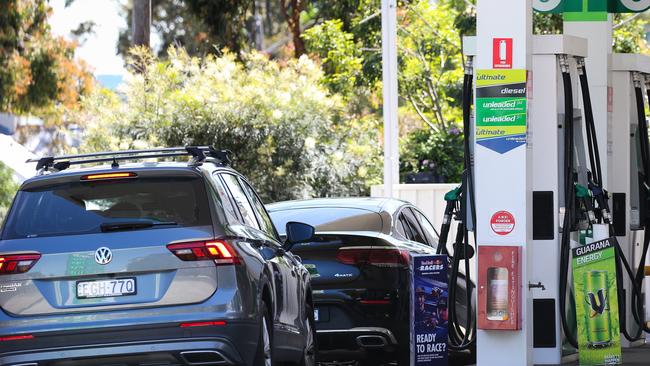‘Brace yourselves for bad news on inflation’, says NAB
This month’s inflation print is expected to show a near 8 per cent jump in petrol costs, NAB says.

Australians should brace for further bad news on inflation, with monthly consumer price figures set to show soaring rents and the end of the fuel tax discount heaping further pressure on stretched household budgets.
Australian Bureau of Statistics data on Wednesday would show inflation climbed from a 32-year high of 7.3 per cent in September to 7.7 per cent in October, NAB economist Taylor Nugent says.
The Reserve Bank predicts inflation will reach a peak of 8 per cent by the end of the year but has progressively lifted its forecasts through the year to account for a steady stream of upside surprises.
Mr Nugent said consumers should brace for “sticker shock” following the release of this week’s monthly data, which he estimated would reveal a near 8 per cent jump in petrol costs following the end of the 22c excise discount at the end of September.
The ABS has only recently begun monthly reporting of its consumer price index, and the more frequent data does not capture all prices that feed into the more complete quarterly figure.
Mr Nugent noted the October release would not include an update of the prices of key services, such as restaurant meals, hairdressers, insurance, and other financial services. He said airfare prices surged by 45 per cent in September, and the bulk of this would flow into October CPI numbers and drive a close to 9 per cent monthly jump in travel and accommodation prices.
With runaway inflation sending real wages backwards at their fastest pace in decades, RBA governor Philip Lowe will front a special Senate estimates hearing on Monday after not being able to attend earlier in the month.
Dr Lowe last week ruffled feathers in Canberra after warning of the danger of pursuing wage claims to match inflation. While wage growth remained contained at 3.1 per cent, he said entrenching high inflation into the economy via a self-reinforcing dynamic with pay would trigger an aggressive monetary policy response and recession.
NDIS Minister Bill Shorten last week dismissed such concerns as “rubbish”, and Employment Minister Tony Burke on Sunday was more diplomatic if also dismissive. “The system is not capable of chasing headline inflation,” he said.




To join the conversation, please log in. Don't have an account? Register
Join the conversation, you are commenting as Logout